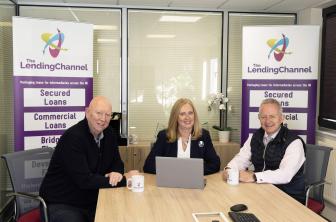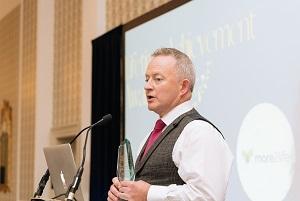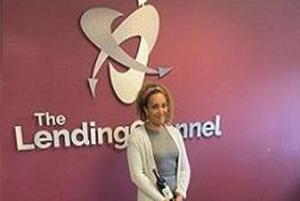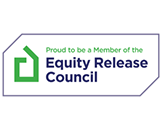Creative Consultants and Freelancers: Your Roadmap to Mortgage Success
If you’re a freelancer or a contractor, you might’ve been told you can’t get a mortgage. But that’s not the case! While it can be trickier than someone with full-time employment, it’s definitely possible.
With over 2 million freelancers in the UK and this number on the rise, especially in the post-pandemic era, it's clear that there's a diverse landscape when it comes to mortgage options for freelancers. Each lender has its unique criteria for assessing freelance applicants, making the mortgage journey more straightforward with some and slightly challenging with others.
In this guide, we'll walk you through all the crucial details you need to navigate the mortgage application process as a freelance worker or a creative consultant. Our team of experts at The Lending Channel is also readily available to address any questions or concerns you may have along the way. Let’s get started!

Are mortgages for contractors different to regular mortgages?
Mortgages for freelancers and those for employed individuals follow the same principles. There are no specialised mortgage deals exclusively for freelancers or creative consultants. The distinction lies in how lenders evaluate mortgage applications. They consider factors such as employment status, income, and credit history, just to name a few.
As a freelancer, applying for a mortgage can be a bit more challenging, but it's certainly a path worth exploring. Freelancers often have fluctuating monthly incomes, which can raise concerns about their affordability.
In contrast, employed applicants typically have a stable annual income or base salary that provides lenders with a clear picture of their earning potential. This predictability makes it easier for lenders to assess affordability.
For freelancers, the assessment process may differ, which is why careful preparation of your mortgage application is essential. It not only enhances your chances of approval but could also enable you to borrow a more substantial amount.
Preparing your financial portfolio
Securing a mortgage as a freelancer can be a unique journey, and one crucial aspect is getting your financial portfolio in order. Lenders need to see a stable and reliable source of income to approve your mortgage application.
Here's a step-by-step guide to help you prepare your financial portfolio for a successful mortgage application:
1. Organise your financial documents
Gather all your financial documents, including tax returns, bank statements, and income records. Organize them neatly, making it easier for both you and the lender to review your financial history.
2. Account for inconsistent income
Freelancers often have income that varies from month to month. To address this, be ready to provide a comprehensive overview of your income patterns. Lenders may want to see a history of your earnings, demonstrating that your income is consistent enough to cover mortgage payments.
3. Build a strong credit profile
Your credit score is a critical factor in your mortgage application. Maintain a good credit history by paying your bills on time and managing your debts wisely. Check your credit report for any errors and dispute inaccuracies.
4. Minimise debt
Lenders consider your debt-to-income ratio. Reducing your outstanding debts can improve your chances of approval. Pay down high-interest debts and avoid taking on new ones before applying for a mortgage.
5. Prove your income
Lenders need confidence in your ability to meet mortgage obligations. Providing tax returns, invoices, and contracts can help demonstrate your stable income. A certified accountant's statement can also bolster your application.
6. Save for a down payment
The more significant your down payment, the more appealing you are to lenders. Freelancers may be required to make a larger down payment to mitigate perceived risks. Save as much as you can to improve your chances.
7. Seek professional guidance
Enlist the help of a mortgage broker or financial advisor experienced with freelancers. They can guide you through the process, helping you make a compelling case to lenders.
8. Steady the ship
Before applying for a mortgage, aim for a few months of steady or increasing income. Lenders appreciate signs of financial stability. Avoid major income fluctuations or career changes right before your application.
9. Shop around
Not all lenders have the same criteria for freelancers. Explore various lending institutions and compare their terms. This can help you find a lender more accommodating to your unique situation.
For personalised guidance on finding the right mortgage as a freelancer or a contractor, don't hesitate to reach out to The Lending Channel. Our experts can help you navigate the lending landscape and provide tailored advice to improve your chances of mortgage approval.
Remember that the key to preparing your financial portfolio for a mortgage as a freelancer is to demonstrate financial stability and reliability. With careful planning and organisation, you can improve your prospects of securing the mortgage you need to achieve your homeownership goals.

Common pitfalls and how to avoid them
Navigating the world of mortgages as a freelancer can be challenging, and there are common pitfalls that you should be aware of to avoid any setbacks in your mortgage application journey. Here are some of the typical challenges faced by freelancers and tips on how to steer clear of them:
-
Inconsistent income
Freelancers often have irregular income, which can make it harder to prove your affordability. To avoid this, maintain a steady record of your earnings over time. Lenders may request several months' worth of bank statements to show a stable income source.
-
Limited track record
Some lenders prefer applicants with a more extended track record of freelancing. If you're relatively new to freelancing, it's essential to demonstrate your skills, qualifications, and past employment history to boost your credibility.
-
High deposit requirements
Freelancers might be required to provide a more substantial deposit to secure a mortgage. Building up your savings and reducing existing debts can help you meet deposit requirements more comfortably.
-
Low credit score
A poor credit score can be a significant obstacle when applying for a mortgage. Monitor your credit score regularly and work on improving it by paying off debts and ensuring your bills are up to date.
-
Lender criteria
Different lenders have various criteria for freelancers. Research and compare lenders to find one that aligns with your specific freelance circumstances and offers more flexibility.
-
Inadequate tax documentation
Lenders may request detailed tax records, so it's crucial to maintain accurate and organised financial records. Ensure your tax returns accurately reflect your income to avoid complications during the application process.
-
Unpredictable work patterns
Freelancers may experience seasonal or unpredictable work patterns. You can mitigate this by building a financial buffer to cover expenses during lean periods, assuring lenders of your financial stability.
-
Interest rates
Freelancers might face slightly higher interest rates due to perceived risk. Shop around and seek professional advice to find lenders with competitive rates that suit your financial situation.
How to get a mortgage as a freelancer
Securing a mortgage as a freelancer or a contractor may not be as complicated as it seems. By following a few straightforward steps, you can simplify the process and increase your chances of success. Here's what you need to do:
-
The first thing to do is make an enquiry with us at The Lending Channel and we’ll arrange for a specialist mortgage broker to contact you who can help with
-
Determine how much you can borrow by analysing your unique earning patterns and converting them into annual income.
-
Get guidance on accessing and improving your credit reports. Learn about the eligibility criteria that mortgage lenders consider.
-
Identify mortgage lenders that are a good fit for your situation. Ensure your application is well-prepared with all the necessary documentation to maximise your chances of approval on the first attempt as a first-time buyer.

Connect with our mortgage broker experienced in self-employed cases
To secure a mortgage as a freelancer, it's advisable to consult with a professional who can evaluate your specific circumstances and elucidate the available choices. Specialised mortgage brokers, such as The Lending Channel, know the ins and outs of the market and we are well-equipped to enhance the approval prospects of your application.
Sending your application to an unsuitable lender with incorrect details might result in a rejection, potentially affecting your credit score negatively. Our network comprises exceptionally skilled and top-rated specialists, and we can connect you with the perfect broker who will guide you through the process and offer valuable assistance in your pursuit of a freelancer mortgage.
Feel free to reach out for an initial consultation and submit an online inquiry – we're here to help!

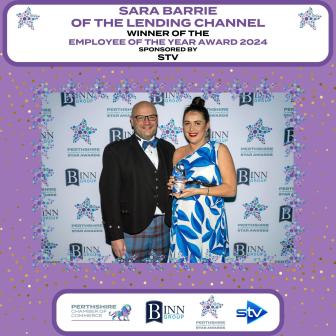


.jpg)

.png)
